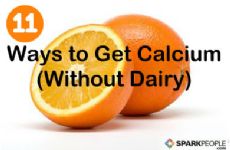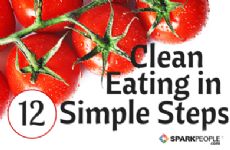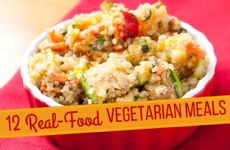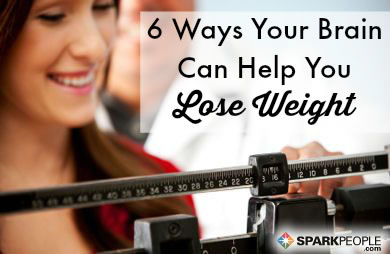|
Vitamins and supplements are big business about a $20 billion business to be more exact. Many medical providers agree that taking a multivitamin can be beneficial but for many people that eat a well balanced diet, it isn't typically necessary. A recent position paper by the American Dietetic Association reveals that eating a variety of foods to consume your nutrients is the best way to stay healthy and avoid chronic disease. This isn't a new nutrition philosophy but it is a message that can't be restated often enough in our supplement crazy society. Most people can get the nutrients their body needs from a typical meal plan that includes a variety of foods from all food groups. However, many of us are falling short in several key nutrients and additional supplementation may be beneficial to help fill in the gaps. Here are 4 important nutrients that may provide supplementation benefits even with a healthy diet. Calcium - An important mineral for blood pressure control and muscle contraction as well as bone and teeth health. Best Sources - Greek Yogurt, skim milk, almonds, tofu and spinach Who May Benefit From Supplementation - With a suggested daily need of 1,000 mg and an increased need for woman over the age of 50, supplementation may be necessary and beneficial for some people. There is also some suggestion that supplementation may benefit those that work out a great deal, especially for woman since having adequate calcium has been found to reduce the risks of stress fractures. Magnesium - An important nutrient involved in over 300 metabolic interactions in the body as well as being important for building muscle. Best Sources - Whole grains like brown rice, almonds, lima beans, and soybeans. Who May Benefit From Supplementation - People at risk for developing type 2 diabetes may find that adequate intake of magnesium reduces risks of developing the disease. It is important to talk with your medical provider before beginning any supplementation because too much of a good thing can be harmful. It is important to note that food labels report magnesium content as %DV based on a 2,000 calorie diet so determining how much you are getting may be difficult. Since high levels of magnesium can cause dangerously low blood pressure in some people as well as digestive upset, before deciding if your diet is deficient, meet with a Registered Dietitian or consult with your medical provider to ensure that supplementation is necessary or if including more magnesium rich foods in the diet is sufficient. Vitamin E - An essential vitamin that assists with blood thinning as well as helping to fight free radicals by serving as an antioxidant. Since antioxidants help reduce risks of premature aging and disease, having a diet rich in vitamin E helps serve as a great anti-aging technique. Best Sources - Almonds provide 35% of your daily vitamin E requirements in a 1 oz serving with other good sources including wheat germ, sunflower seeds and spinach. Who May Benefit From Supplementation - If you have risk factors for heart disease or currently have heart disease and do not get enough vitamin E in your diet, you may benefit from supplementation. Because vitamin E supplements may not be advised with certain medications and medical conditions due to the blood thinning, it is best to discuss the need for supplementation with your medical provider or Registered Dietitian before including them in your daily regimen especially since this is a vitamin that is fairly easy to get from a healthy diet. Vitamin D – This important vitamin has become one of the most talked about vitamins of late. Recent findings suggest that over 70% of American's have low vitamin D blood levels. It is unclear if this is because we are not eating enough, are not processing it adequately for some reason, because our actual needs are higher than originally thought or a combination of several of these theories. It is known however that vitamin D is an essential vitamin for adequate wound healing, immunity and maintaining blood pressure. Best Sources - Whole eggs, salmon, vitamin D fortified skim milk Who May Benefit From Supplementation - People that follow a vegan diet are at increased risk of having low vitamin D levels and may benefit most from supplementation. People with certain medical conditions may also be at increased risk as well. Before deciding if you would benefit from supplementation, talk with a medical provider about blood tests. You may also benefit from meeting with a Registered Dietitian to make sure the food choices you are making, maximize your vitamin D intake. How are you doing with your vitamin and mineral intake? Do you maximize your food selection to ensure adequate intake? |
Related Entries
More From SparkPeople
|























